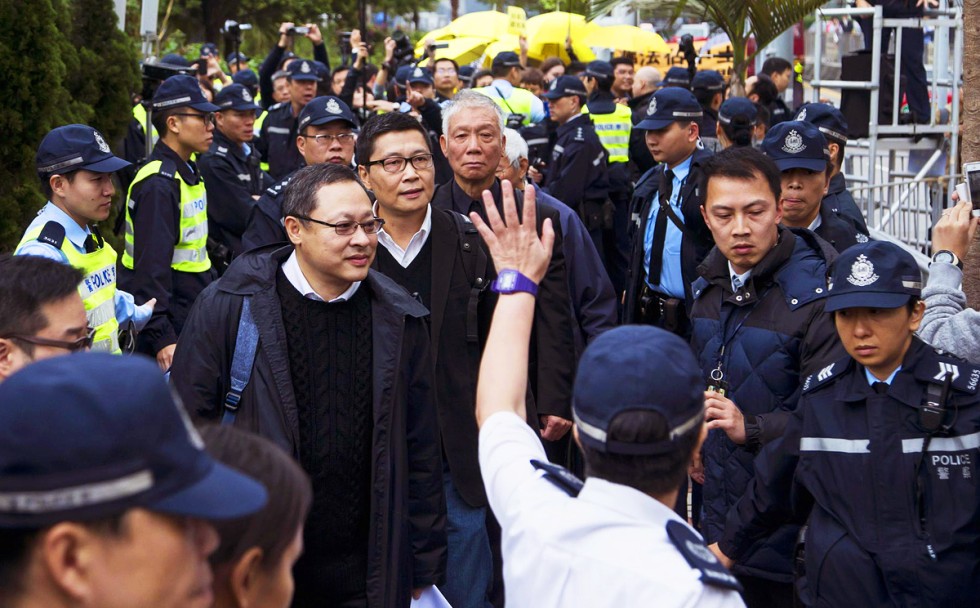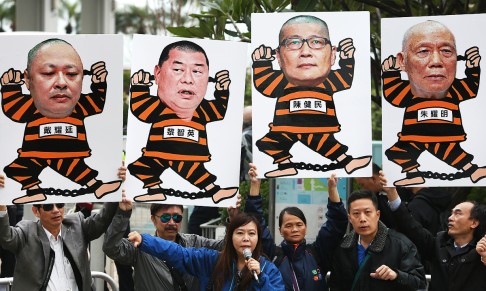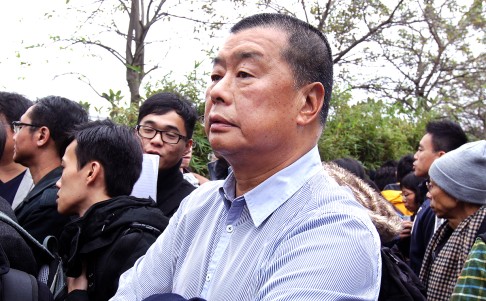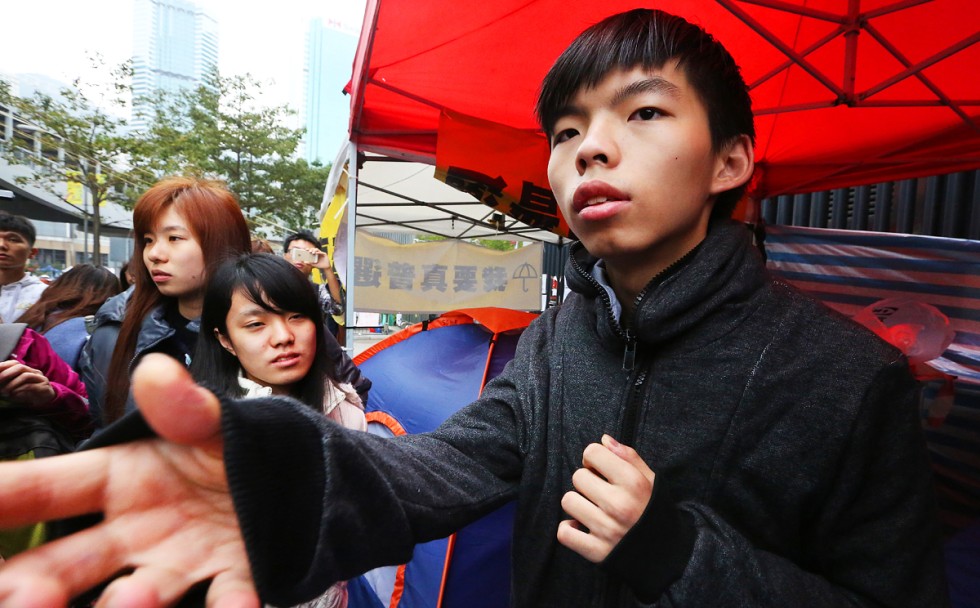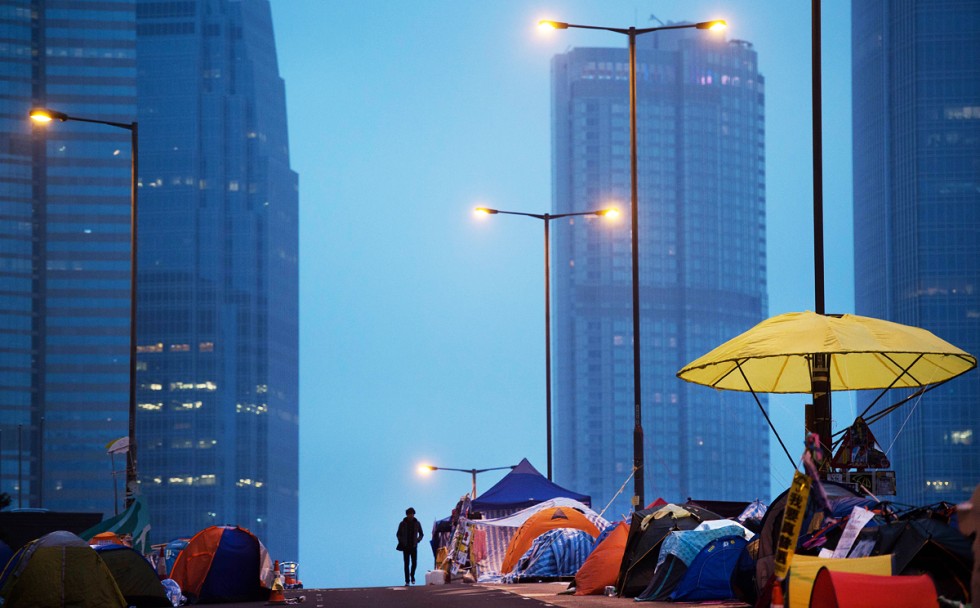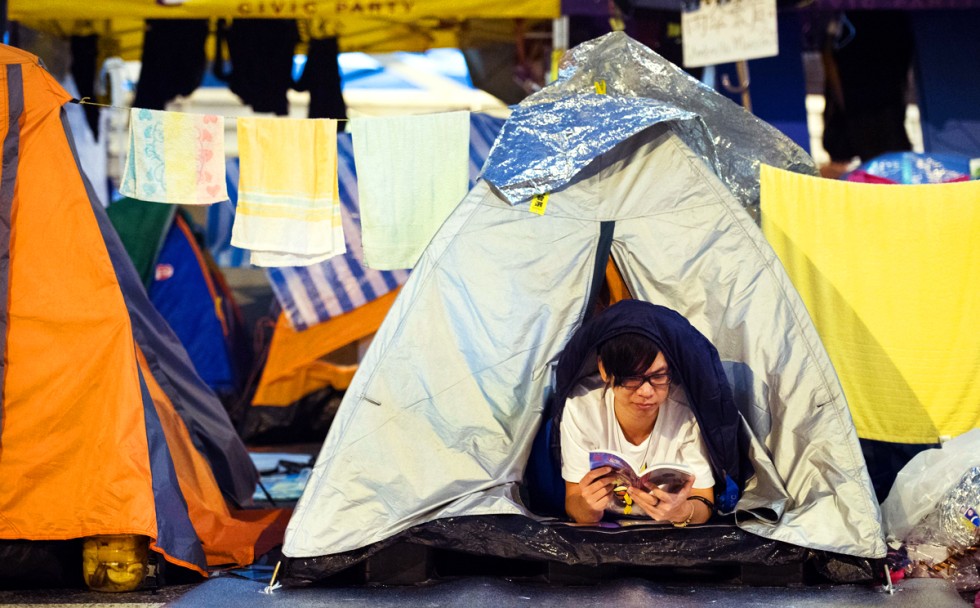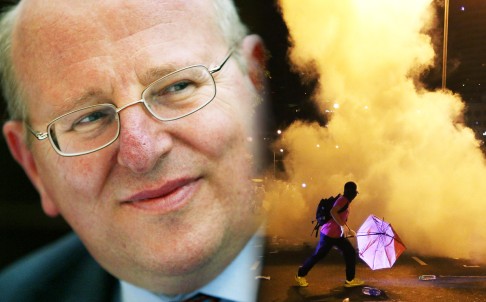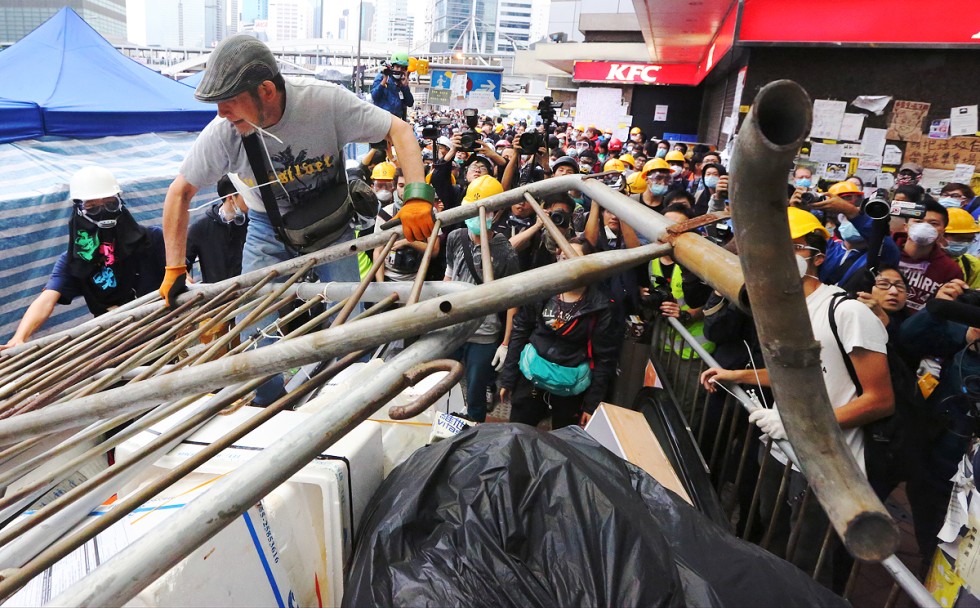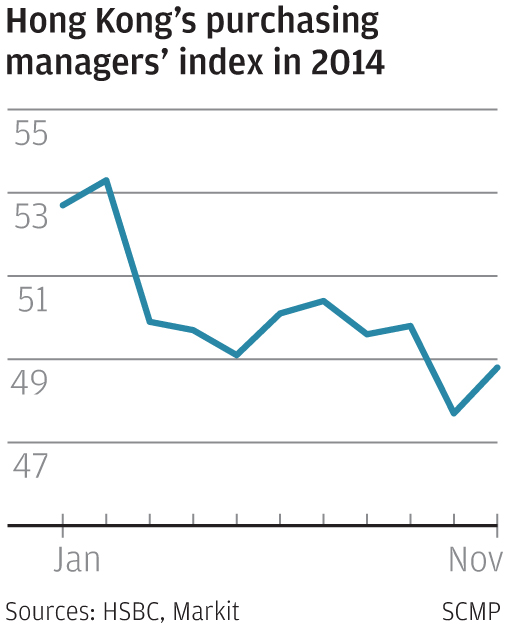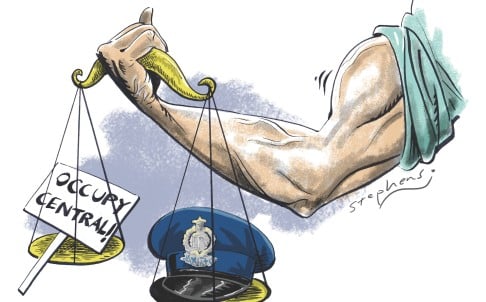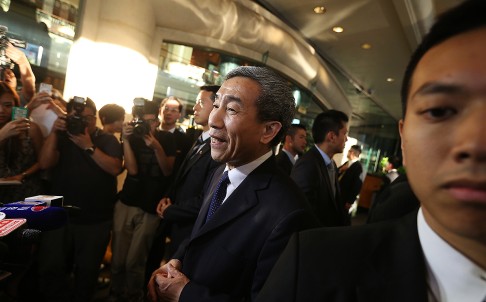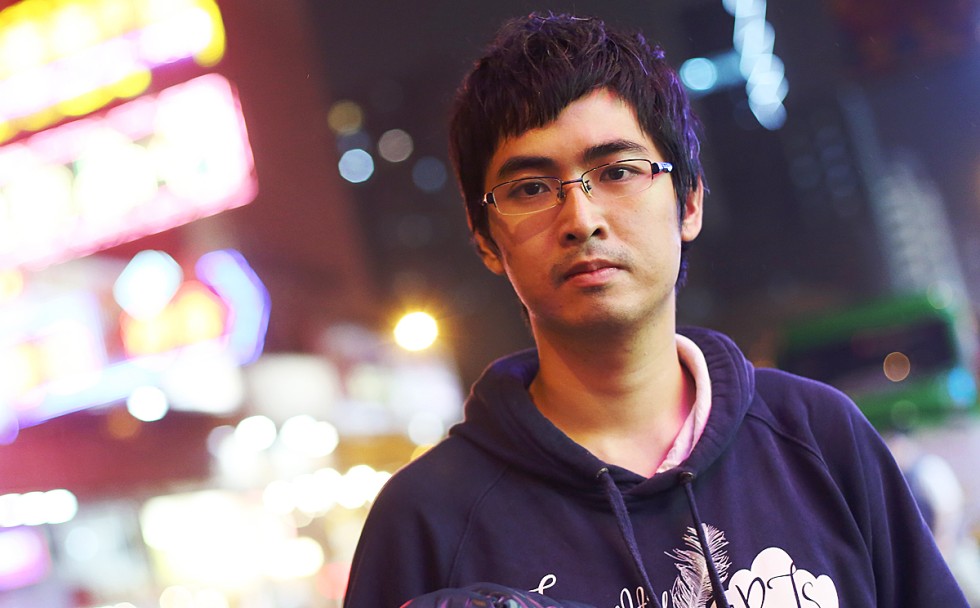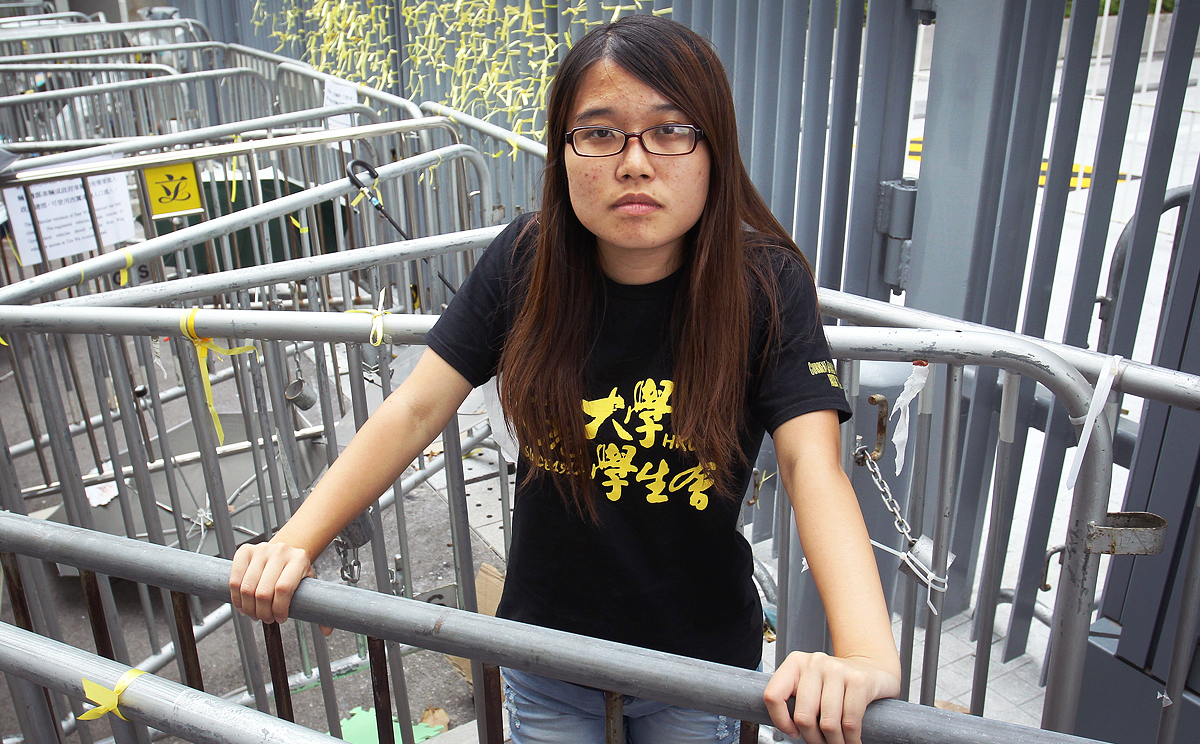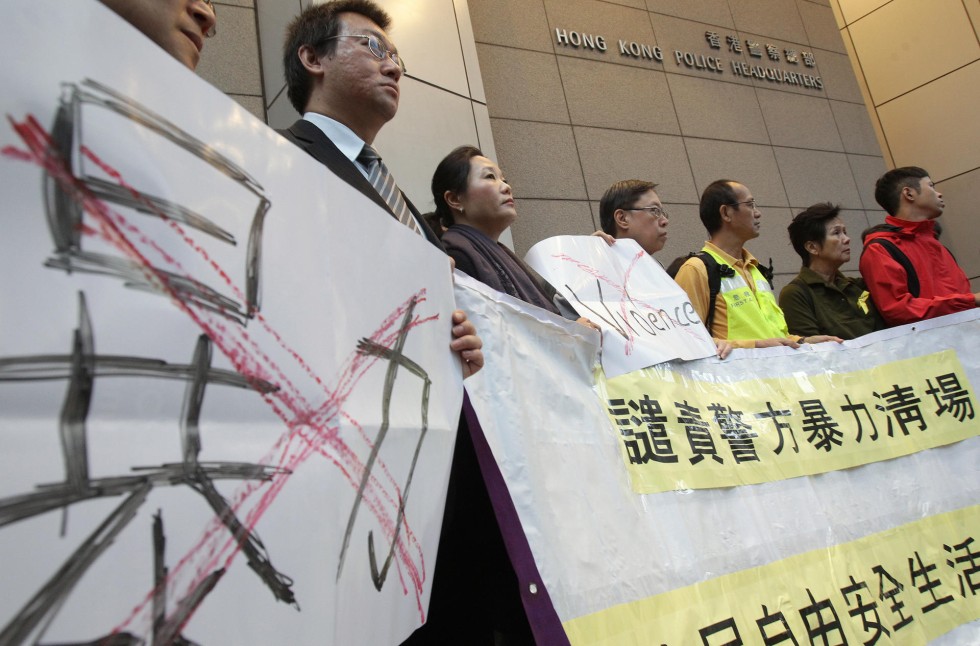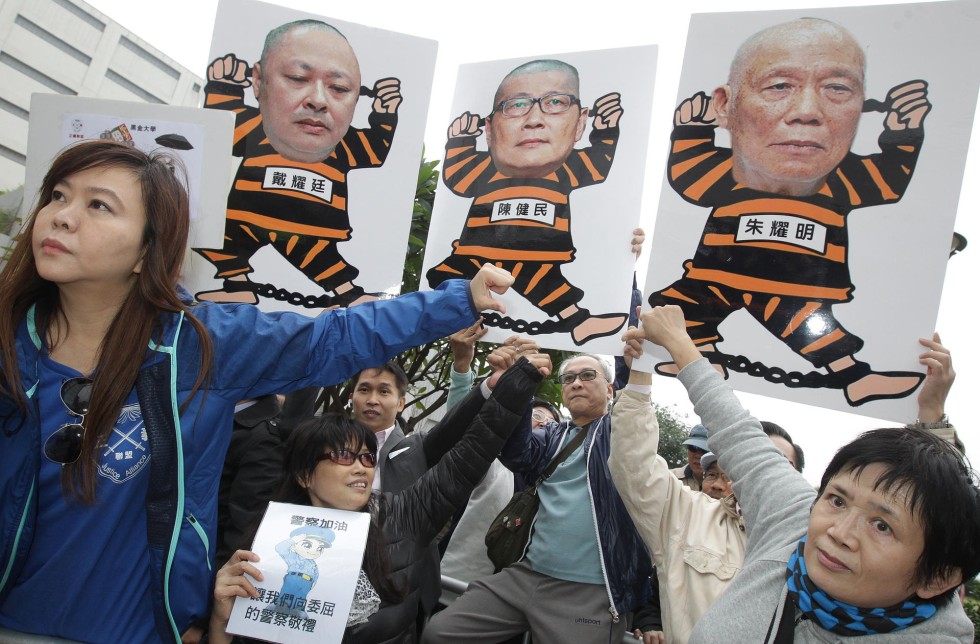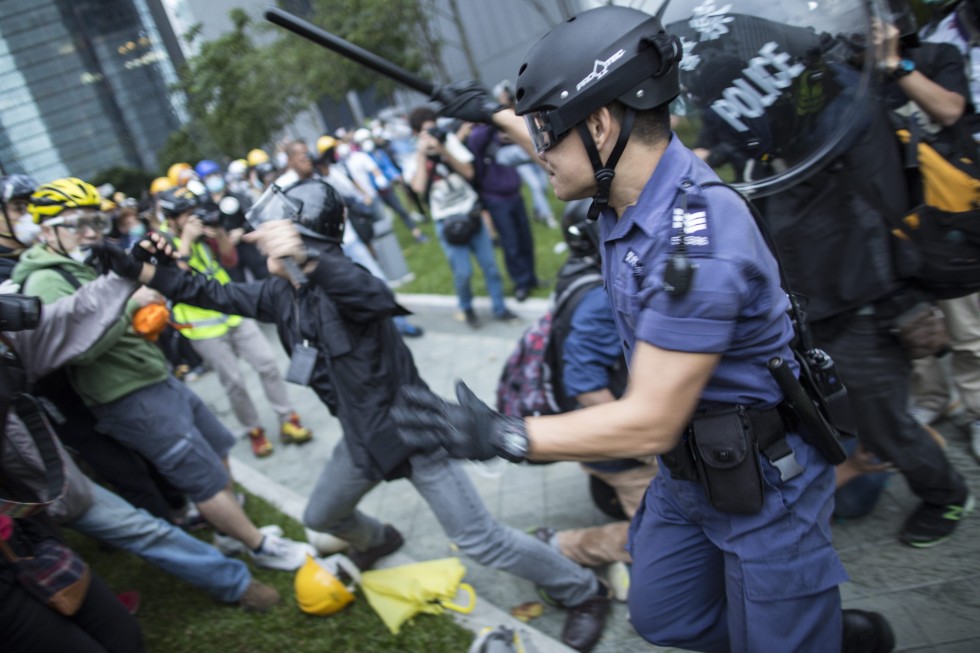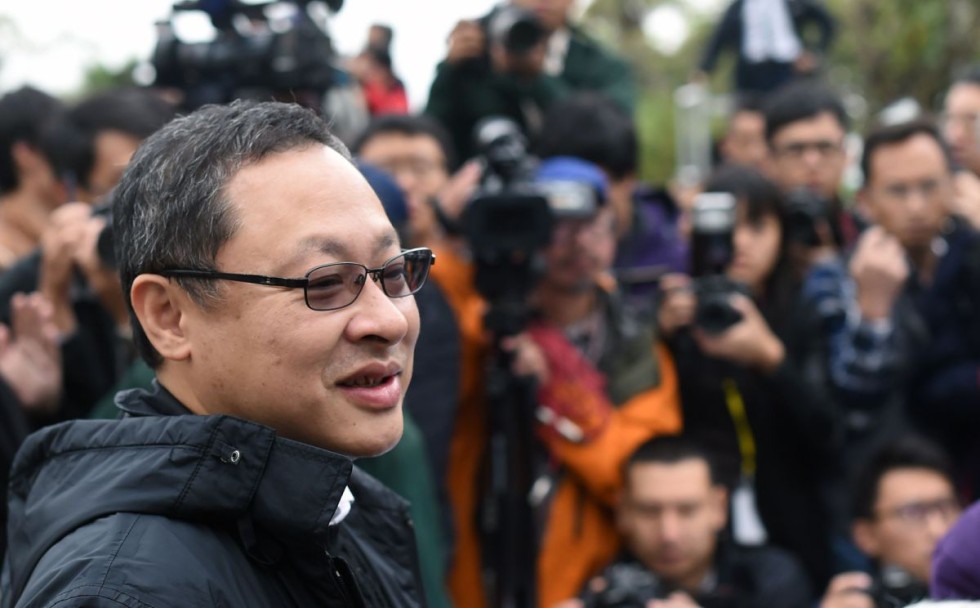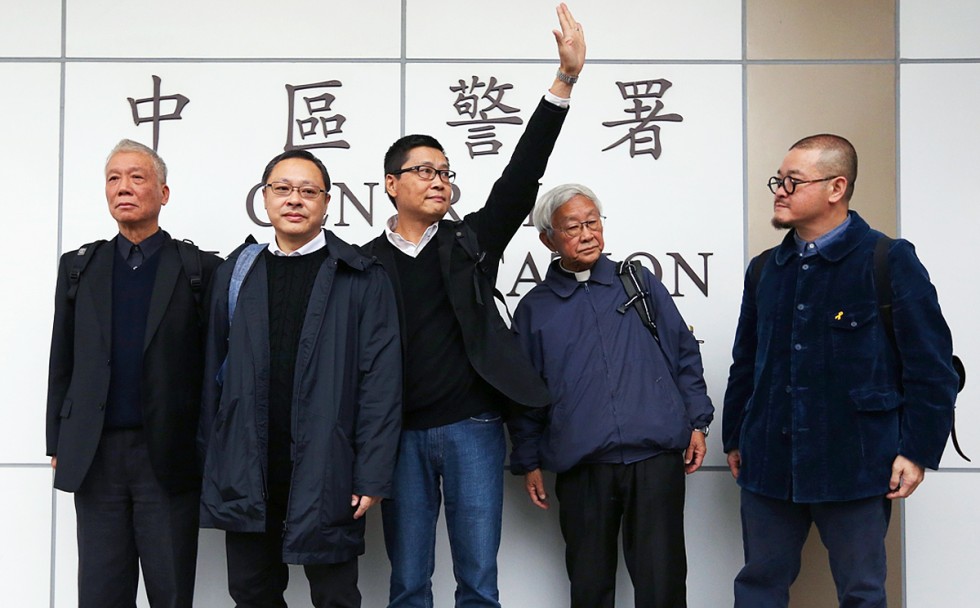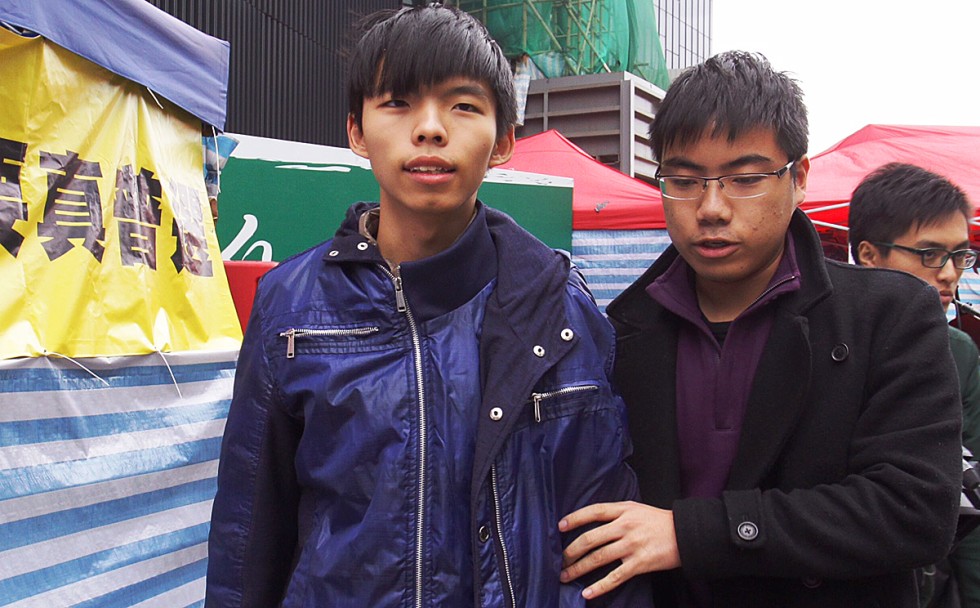- Joined
- Nov 13, 2014
- Messages
- 272
- Points
- 0
Re: UN supports HK protestors!!!
PUBLISHED : Wednesday, 03 December, 2014, 5:07am
UPDATED : Wednesday, 03 December, 2014, 5:07am
Hong Kong Occupy 'leaders' set for another show by turning themselves in to police

Alex Lo
[email protected]
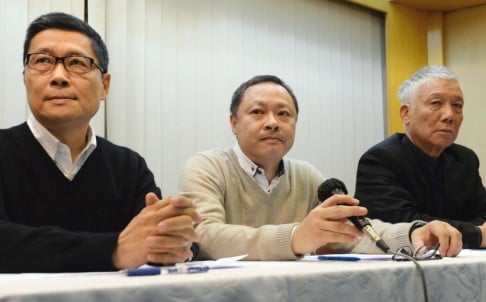
(From left) Chan Kin-man, Benny Tai and Chu Yiu-ming say they will surrender to police and call off the occupation campaign. Photo: Kyodo
Last year, which now seems a lifetime away, I had a long lunch with Benny Tai Yiu-ting. Something about the guy made me like - even respect - him. He was modest but clever, and absolutely convinced he was on the right (and righteous) path. Occupy Central was still a theoretical plan he had concocted and was then generating city-wide debate. He had all the steps and plans neatly thought out.
His partners-in-crime, Dr Chan Kin-man and the Reverend Chu Yiu-ming, would later join him to kick-start the movement. If they only knew that the best-laid war plans would get thrown out of the window the minute the first shot was fired in battle...
It's almost tragic the trio - a legal academic, a sociologist and a pastor - who will finally turn themselves in to police today after dithering for weeks, have so much religious faith - all three are devout Christians - yet know so little about politics and political organisation. So they never managed to get ahead of the movement they helped inspire.
They were left behind by developments on the ground from day one - starting in late September when students boycotted classes. Activists then decided to occupy Mong Kok, Admiralty and Causeway Bay - anywhere but Central. The waves of protest were truly spontaneous. And peaceful or not, they had no time for Tai's theoretical plan about how the protest movement should unfold. The man at the centre of political debate for almost two years suddenly became almost irrelevant. Despite his faith in the virtue of the masses, democracy still needs real leaders.
So in an absurd and pitiful way, these three well-meaning men have been left to fight for democracy by holding press conferences. They shaved their heads before the camera. Now that their locks have grown back, they announced yesterday, yet again, that they would turn themselves in.
But what crime have they committed when they were barely involved in the protests and clashes with police? The three told their followers to come along at exactly 3pm today for the long-awaited occasion. The delusional and unhinged Catholic Cardinal Joseph Zen Ze-kiun will join the three Occupy activists. It promises to be another media circus, full of sound and fury, signifying nothing.
PUBLISHED : Wednesday, 03 December, 2014, 5:07am
UPDATED : Wednesday, 03 December, 2014, 5:07am
Hong Kong Occupy 'leaders' set for another show by turning themselves in to police

Alex Lo
[email protected]

(From left) Chan Kin-man, Benny Tai and Chu Yiu-ming say they will surrender to police and call off the occupation campaign. Photo: Kyodo
Last year, which now seems a lifetime away, I had a long lunch with Benny Tai Yiu-ting. Something about the guy made me like - even respect - him. He was modest but clever, and absolutely convinced he was on the right (and righteous) path. Occupy Central was still a theoretical plan he had concocted and was then generating city-wide debate. He had all the steps and plans neatly thought out.
His partners-in-crime, Dr Chan Kin-man and the Reverend Chu Yiu-ming, would later join him to kick-start the movement. If they only knew that the best-laid war plans would get thrown out of the window the minute the first shot was fired in battle...
It's almost tragic the trio - a legal academic, a sociologist and a pastor - who will finally turn themselves in to police today after dithering for weeks, have so much religious faith - all three are devout Christians - yet know so little about politics and political organisation. So they never managed to get ahead of the movement they helped inspire.
They were left behind by developments on the ground from day one - starting in late September when students boycotted classes. Activists then decided to occupy Mong Kok, Admiralty and Causeway Bay - anywhere but Central. The waves of protest were truly spontaneous. And peaceful or not, they had no time for Tai's theoretical plan about how the protest movement should unfold. The man at the centre of political debate for almost two years suddenly became almost irrelevant. Despite his faith in the virtue of the masses, democracy still needs real leaders.
So in an absurd and pitiful way, these three well-meaning men have been left to fight for democracy by holding press conferences. They shaved their heads before the camera. Now that their locks have grown back, they announced yesterday, yet again, that they would turn themselves in.
But what crime have they committed when they were barely involved in the protests and clashes with police? The three told their followers to come along at exactly 3pm today for the long-awaited occasion. The delusional and unhinged Catholic Cardinal Joseph Zen Ze-kiun will join the three Occupy activists. It promises to be another media circus, full of sound and fury, signifying nothing.


